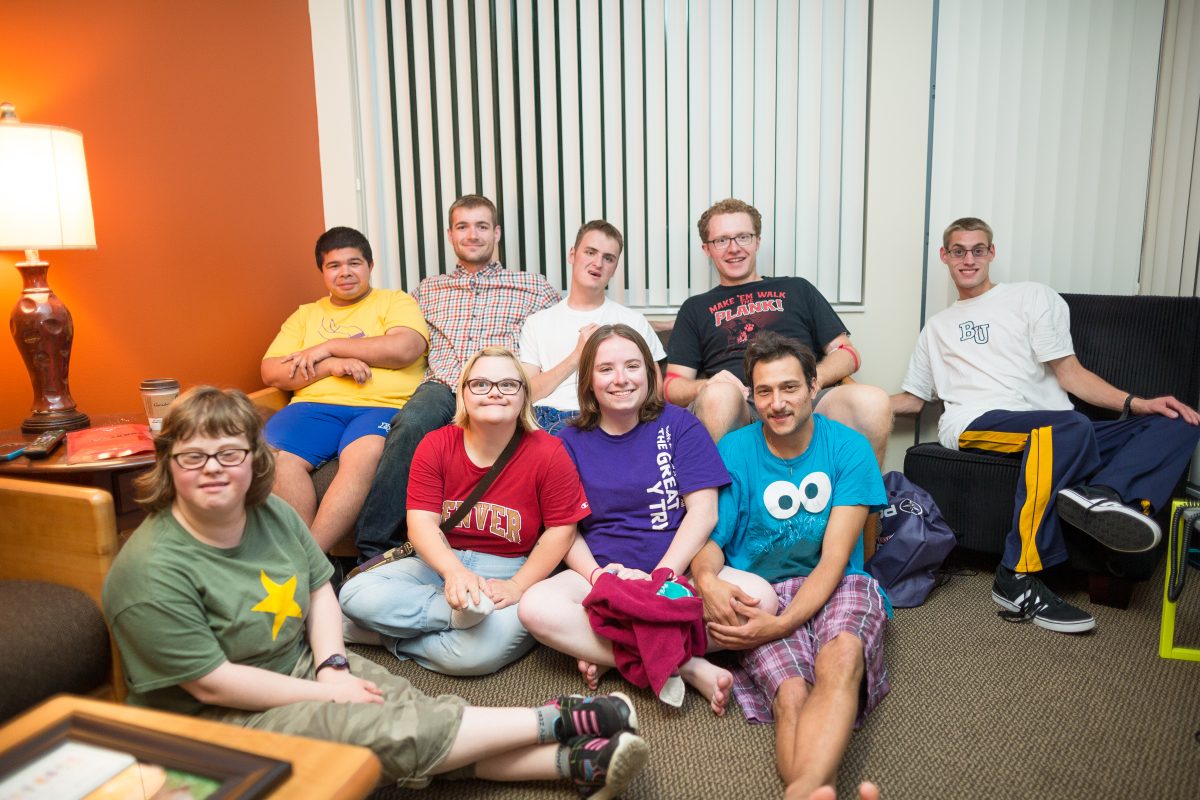Take a look inside Bethel University’s BUILD program, a two-year post-secondary, residential program for students with intellectual disabilities.
Christine Ramstad | Features Editor
It’s not unheard of for colleges to offer classes for students with intellectual disabilities. This year, however, Bethel became the first accredited university to add the residential component as a part of what is called the BUILD program.
Dawn Allen, the Director of the BUILD program, welcomed 12 students to Bethel this year as the program’s first participants.
“We had one father break down in tears and say ‘I always thought she would never be able to live without me, now I don’t know if I can live without her,’” Allen said.
Bethel’s BUILD program allows students with intellectual disabilities to experience a college lifestyle and learn in a two-year residential program.
“(BUILD students) are very positive and willing to talk about whatever,” student housing mentor Jake Harren said. ”There’s no holding back. We are able to talk like any roommates do about girlfriends, faith and anything that comes to mind.”
Harren lives in a Lissner suite with four BUILD students. Harren was looking for more responsibility than just being a student at Bethel when he heard about the opportunity to be a BUILD mentor. He recalls early memories from his elementary school days in which he felt a special connection with students with disabilities.
“I’ve worked with students who maybe have different needs and challenges than me and it clicked with me and worked for me,” Harren said.
BUILD students live in Lissner, attend class, eat in the dining center, work internships, hang out with friends and live the college life familiar to most Bethel students. They live in suite-style dorms with two Bethel students who serve as housing mentors. The program is open to students between the ages of 18 and 25. The hope is that being with peers of the same age will create more natural matches for friendships.
For adults with intellectual disabilities, education after high school is typically limited to a transition program provided by school districts, usually in high schools, that involve going to class in one classroom, learning skills in isolation and having sheltered work experience.
The BUILD program aims to break boundaries and establish new territory for post-secondary education for people with intellectual disabilities. Allen said the program is so unique that she received applications from Colorado and Nebraska, and even a family in South Africa inquired about applying.
Students gain independent living skills by spending time doing household tasks like cooking meals and doing laundry.
“I’m learning about how to cook. It helps because that’s the stuff I will be doing after graduation,” said Margaret Erickson, a student in the program.
One of the most challenging parts of Harren’s role as a mentor is just letting go.
“They can do even the smallest details of daily tasks on their own,” he said. “They can be independent. We have to give them the opportunity to see these things for themselves,”
Bethel students interested in being a mentor with the BUILD program can also serve as job mentors who work alongside the students in internships. Each BUILD student is provided with an on-campus internship in a field of study that interests them. For example, BUILD students can be found working in the Campus Ministries office, the Child Development Center, Sodexo and in the Admissions Office.
Employment skills are a main focus of the program and during their second year, students will have internships off- campus. The goal is that those internships will turn into part-time jobs after graduation from the program.
Students spend their days in classes developing cognitive ability in math, finance and technology while improving their social skills. Ben Boatman, a BUILD student, is excited about swing dancing and his experience so far.
“It’s been really great,” Boatman said. “The hardest part is using the iPad.”
Harren encourages students to step out of their comfort zone, saying, “Whatever thoughts or ideas or stereotypes or fears you have, know that you’re not the only person. A lot of things they fear and stereotypes they wonder about are similar. We aren’t on two different playing fields when it comes to making new friends.”
Samuel Kohs, a BUILD student, gives simple advice to fellow Bethel students, “Stay alert. Say ‘Hi.’”


















